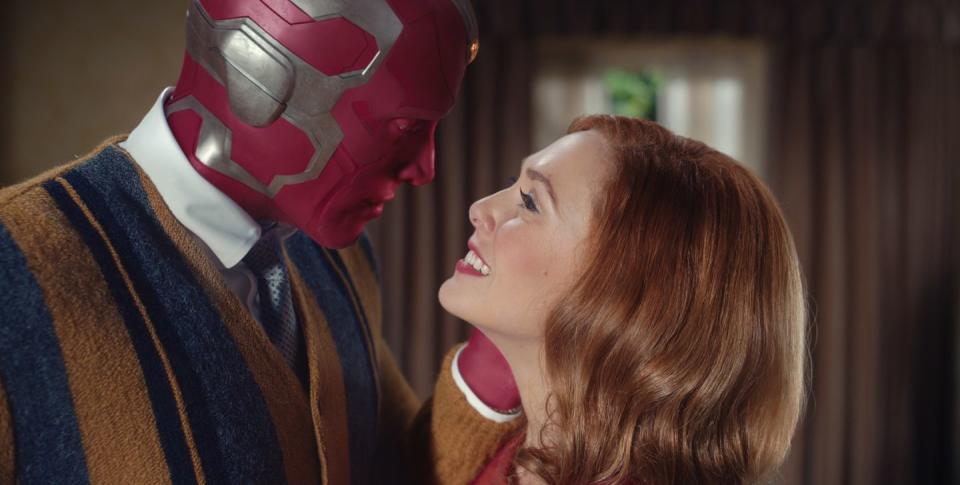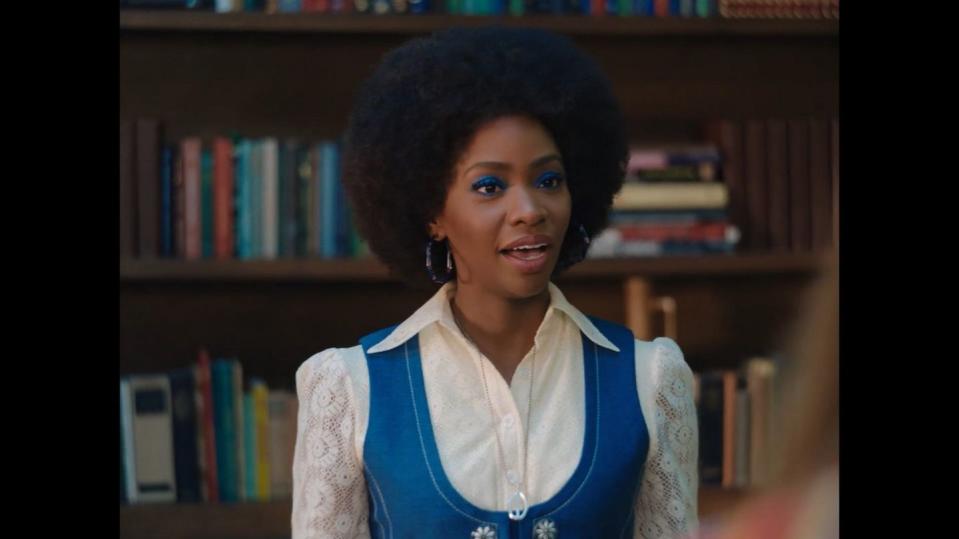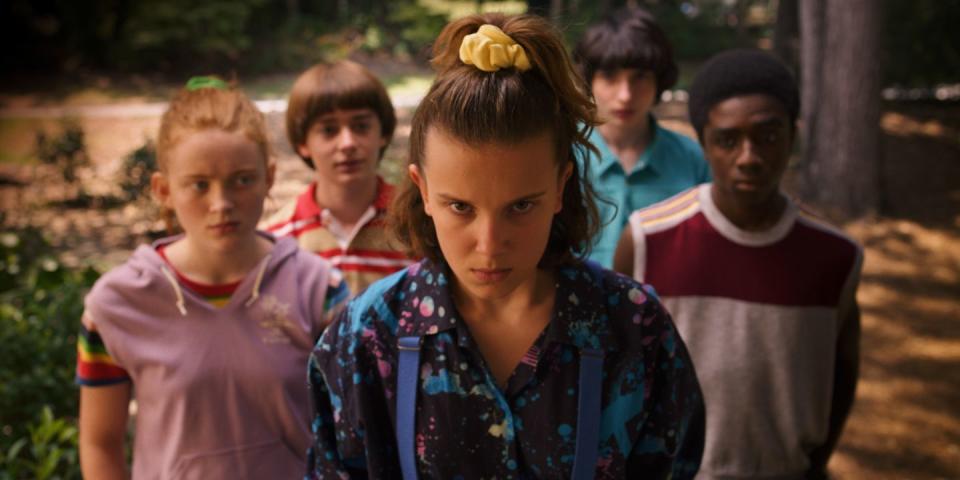Are we seeing the end of binge-watching?

Since Netflix burst on to the scene over a decade ago, it has completely transformed the entertainment landscape and arguably, its biggest impact has been on how we consume media.
They threw the long-standing tradition of airing shows weekly out of the window in favour of dropping entire seasons of television at once. This inevitably led to viewers devouring these shows over a day or two, and the 'binge' was born. Since then, for many binge-watching has become the default method of watching TV. When Amazon Prime joined Netflix in this release strategy, it looked like bingeing was an untouchable cornerstone of streaming services.
With the launch of Disney+ and Apple TV+ last year, amongst many other streaming services, it seemed that we were approaching 'peak binge' and that viewers would never have to leave the house again. While the latter has unfortunately come to pass, the former proved to be a false dawn.

Disney and Apple both decided to release episodes of their original shows weekly, harking back to the network schedules of old.
Even more troubling for binge-watchers, Amazon Prime has also started to favour weekly releases with its new shows. So why has this shift occurred and could we be coming to the end of the binge-watching era?
Searching for a Watercooler
In the case of Disney+ and Apple TV+, their use of weekly releases could be partially explained by the relative lack of original programming on these services. It means that users who sign up with a free trial will hopefully get hooked on a show and become a paying user, rather than bingeing the shows within the trial and then cancelling subscriptions.
However, this overlooks a vital aspect of weekly viewing: anticipation. Weekly viewing allows for a far greater discourse to build up around TV shows, through articles, memes, theories and word-of-mouth spreading online. This can also help increase viewing figures for the shows, as people want to get involved in the conversation.

This was alluded to by Kevin Feige, the CEO of Marvel Studios, when discussing the decision to air WandaVision weekly, starting from January.
Speaking to TVLine, Feige stated that they had discussed releasing the whole season Netflix-style but “everybody at Disney+ had decided – and we very much agreed with – the notion of the fun of week-to-week.”
Feige used the example of The Mandalorian, and said that it has “proven that there’s something fun to be able to follow along, to try to guess what happens next, to have a week speculating or re-watching and building that anticipation.” This certainly benefits shows based around a mystery, like WandaVision, as viewers can try to pierce clues together online, rather than trying to avoid spoilers from binge-watchers who already have all the answers.
From Feige’s comments it seems likely that all of the Marvel Cinematic Universe (MCU) shows on Disney+ will air weekly. This means we’ll have new episodes of the MCU most weeks for the rest of the year at least.

Weekly releases benefited shows such as Westworld and Game of Thrones, which became watercooler shows, as viewers discussed each episode. It can be harder for binged shows to break into the cultural zeitgeist in this way. Viewers watch at different speeds, and people who watched the show within a couple days will speak about it online, which can make avoiding spoilers a minefield.
Prime goes weekly
This makes it more difficult for shows to build hype, which may be behind Prime’s decision to change tack. This year, new seasons of The Boys and The Expanse have adopted the 'semi-binge' model first championed by Apple TV+ – namely, three episodes released initially followed by weekly episodes. This decision worked wonders for The Boys, which was acclaimed by critics and delivered fantastic Nielsen viewer ratings, despite wannabe-bingers review-bombing the show.
The creator and executive producer of The Boys, Eric Kripke, stated in an official press release that the writers wanted to give viewers "time to freak out, digest, discuss, come down from the high, before we give you another dose." He also told Digital Spy that airing all episodes at once leads to "a sugar rush of a binge. People burn through it in a week or two. There's an intense amount of activity, and then it sort of fades."

James SA Corey, penname of the writers of The Expanse books and executive producers of the TV show, seemingly agree with Kripke. Corey stated on Twitter that releasing shows all at once is "bad for the shows. You spend all year making a show and it gets into the public consciousness for a week and then disappears." They went on to posit that "it's part of what has led to our current, 'three seasons then auto cancelled' streaming service model."
Corey’s point seems to be that hype quickly dies around new releases when they are released all at once. Looking at Netflix’s schedule, it’s easy to see their point. For instance, in July the show Cursed was released to much fanfare. But only two weeks later, The Umbrella Academy season two was due to be released, so the advertising quickly switched over and Cursed was almost forgotten.
A similar thing happened in 2019, when Orange is the New Black’s final season was quickly followed by new seasons of Glow and Mindhunter. The advertising juggernaut moves on to the next shiny new show very quickly. This can lead to some shows being suffocated, instead of the advertising sustaining over a season.

Corey’s assertation that this has led to the cancelling of shows is harder to prove, as most streaming services don’t publish viewing figures, but it could certainly be a factor.
Could Netflix follow suit?
Netflix has shown more flexibility with release schedules in the past year or so. New episodes of The Great British Bake Off are now released weekly in the US. However, it seems extremely unlikely that Netflix will move away from a strategy that has seen the company become essential to many people.
Netflix’s co-CEO Ted Sarandos proved his support for binge-watching when commenting on the HBO Show Succession, a series itself mooted to have become such a success due to its weekly episodes. Sarandos stated that he doesn't like "the traditional way it's rolled out. If I liked the show a little bit less I’d probably burn out on it. Because I get aggravated every week waiting for the next episode."
Netflix’s official twitter also responded simply, "We’re not changing," when questioned about weekly releases.

Sarandos and Netflix have evidence to prove the effectiveness of their strategy. Research that Netflix conducted and published in 2015, found that in "more than 20 shows across 16 markets, no one was ever hooked on the pilot. This gives us confidence that giving our members all episodes at once is more aligned with how fans are made."
Netflix also has little impetus to change, as they recently announced in a stakeholder letter that they passed 200 million subscribers towards the end of 2020 and earned $6.6 billion in revenue in the last quarter alone. With at least 71 new, original movies premiering in 2021, they should have little trouble keeping viewers invested.
Their release strategy hasn’t been completely abandoned by their competitors either. Comcast’s new streaming service, Peacock, is releasing whole seasons at a time. In the UK, BBC and ITV are releasing entire seasons on their streaming services, while airing weekly episodes on their TV channels.

As the Streaming War hots up, the decision of many streaming services to move to weekly releases has established a clear divide which may decide which companies come out victorious.
Weekly releases will bolster the shows themselves, allowing for better press coverage and more opportunity for a discourse to develop around them. However, by sticking to their guns and releasing shows all at once, Netflix could already have the answer to retaining its grip on the market. It will remain the home of binge-watching, which may allow the company to retain its unique favourability from the other services available.
Digital Spy has launched its first-ever digital magazine with exclusive features, interviews, and videos. Access the latest edition with a 1-month free trial, only on Apple News+.
Interested in Digital Spy's weekly newsletter? Sign up to get it sent straight to your inbox – and don't forget to join our Watch This Facebook Group for daily TV recommendations and discussions with other readers.
You Might Also Like

 Yahoo Finance
Yahoo Finance 